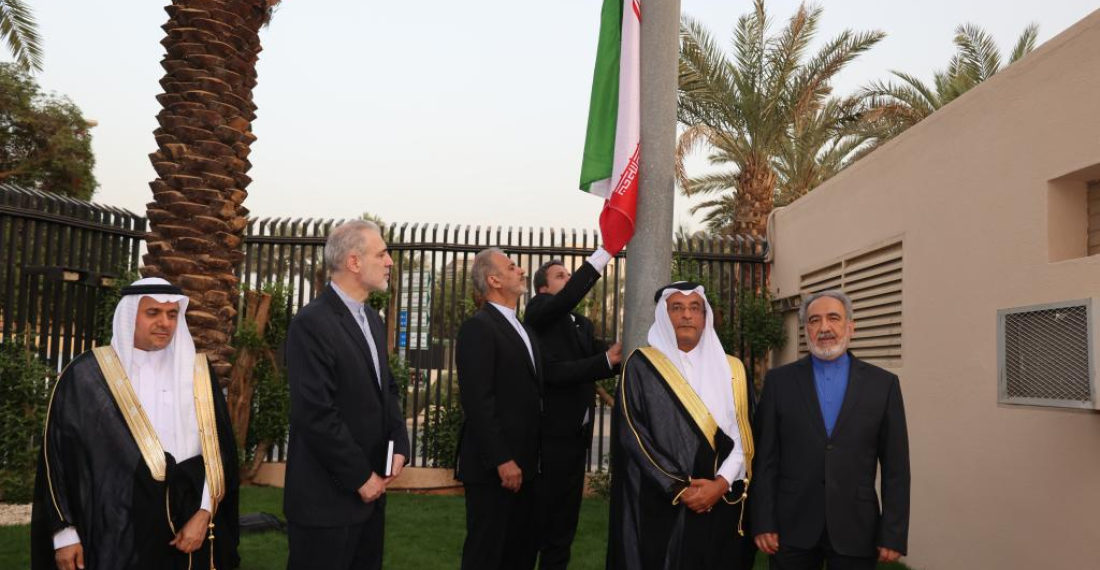Iran has reopened its embassy in the Saudi capital of Riyadh on Tuesday (6 June), the Saudi outlet Al Arabiya reported on Tuesday.
The agreement to reopen embassies in each other's respective capitals was struck on 10 March in Beijing, re-establishing diplomatic ties that had been broken for years. You can read more about the 10 March agreement here.
“We consider today an important day in the relations of the Islamic Republic of Iran and the Kingdom of Saudi Arabia,” Iranian Deputy Foreign Minister Alireza Bigdeli told a flag-raising ceremony, adding that “the cooperation between the countries is entering a new era.”
At a meeting with his Saudi counterpart Prince Faisal bin Farhan Al Saud in Cape Town last Friday (2 June), Iranian Foreign Minister Hossein Amir-Abdollahian expressed satisfaction with the "good progress made in bilateral ties". The two foreign ministers were meeting in South Africa on the sidelines of the “Friends of BRICS” summit.
The next BRICS summit between Brazil, Russia, India, China and South Africa will take place in Johannesburg in August.
Meanwhile, the opening of the Iranian consulate in Jeddah is expected to take place on Wednesday (7 June).
There is still no official confirmation neither on when the Saudi embassy in Tehran will open, nor their consulate in Mashhad. Who their ambassador will be is still also to be confirmed.
There had been many years of tensions been Saudi Arabia and Iran
While the two countries have long been rivals in establishing regional dominance and tensions brewed for years, Saudi Arabia broke off ties with Iran in 2016 after protesters stormed Saudi diplomatic posts and set fire to the Saudi embassy in Tehran. Days earlier, Saudi Arabia had executed the prominent Shiite cleric Nimr al-Nimr.
Since then tensions have continued to exist over a number of issues, including over the US withdrawal from the Iran nuclear deal in 2018, and over the ongoing war in Yemen.
source: commonspace.eu with agencies
photo: Xinhua






